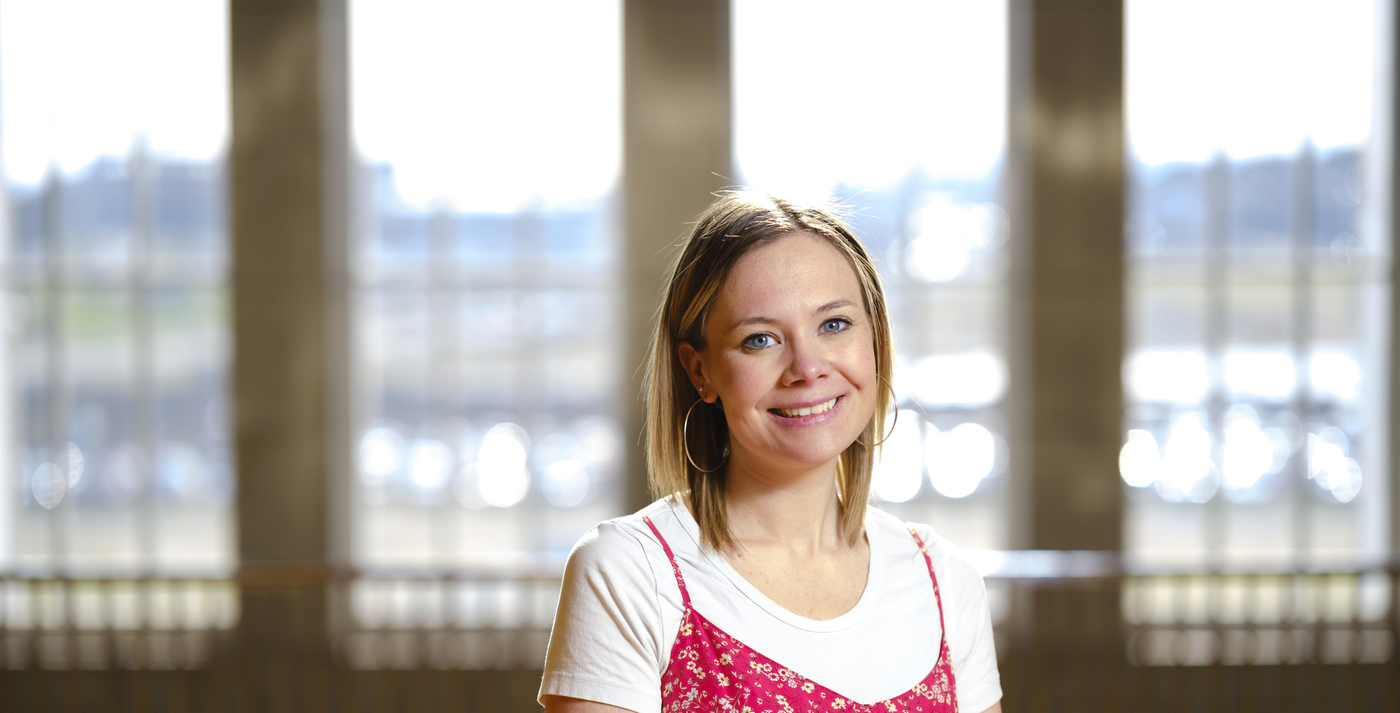"When we speak one could maintain that we are marketing ourselves and how we change our manner of speech depending on our situation, where we want to be, or simply how we wish others see us says a lot about the language itself," says Lilja Björk Stefánsdóttir, doctoral student in Icelandic linguistics. She is mapping how people change their speech during their lifespan and what social factors impact that change. In her study she uses language technology to sift through an enormous amount of data on the speech of Members of the Icelandic Parliament.
This data lies in the so-called Icelandic Gigaword Corpus that includes an enormous corpus, including material from MPs. "The existence of this data gives my study the edge of being able to build on a very high time resolution, i.e. the number of readings on the timeline that the research is based on. It is common for studies on lifespan changes to be based on only two or three periods in the lives of people, but thanks to the Icelandic Gigaword Corpus and the latest progress in language technology I can base my research on much more thorough material than has been done before," she points out.
Studying changes in the speech of two MPs
Lilja says she has been interested in the social side of language for a while now. "My interest lies first and foremost in the field of sociolinguistics and understanding how people's attitude towards the language shapes the way they speak. This also involves most aspects of linguistics such as research on language change, grammar, and syntax, as well as the development of languages," says Lilja.
Lilja's focus on the language use of members of parliament already began in her undergraduate studies where she studied changes in pronunciation of Helgi Hrafn Gunnarson, former MP for Píratar. "I analysed very interesting changes in his pronunciation which I put in perspective with changes in Helgi Hrafn's social status," says Lilja.
The main spark for the doctoral research was, however, a project she worked on with her supervisor, Anton Karl Ingason, associate professor of Icelandic linguistics and language technology, on the changes in the speech of Steingrímur J. Sigfússon former Member of Parliament, Minister, and the Speaker of Althingi. "We used similar methods to the ones I am currently using in that study; and you can in fact say that my doctoral thesis is a continuation of that study on a much larger scale of course," explains Lilja. Her doctoral committee comprises Laurel MacKenzie, assistant professor in sociolinguistics at New York University; Einar Freyr Sigurðsson, research assistant professor at the Árni Magnússon Institute for Icelandic Studies, and Ásgrímur Angantýsson, professor of Icelandic linguistics, in addition to Anton.
Steingrímur more formal as Minister than in the opposition
What does the research entail? "As is customary in research of language change and variations in language I focus on certain grammatical variables, i.e. grammatical items where you can say the same thing in two different ways. The variables I am studying are stylistic fronting and narrative inversion; both connected to formal style in Icelandic, and thus affiliated with the difference of formal and informal style. I place emphasis on style-shift in my research which is when an individual changes the way they speak towards a more formal register in certain circumstances," says Lilja. She gives an example of an informal and formal turn of phrase („fólk sem er til rannsóknar“ eða „fólk sem til rannsóknar er“) where the formal one is an example of a style-shift.
Lilja is going to map the use of these variable for each participant in her study, which will provide information on how their speech has changed in the course of their lives. "As I mentioned before I use methods from language technology to collect the examples systematically from the Icelandic Gigaword Corpus which I then analyse to create a clearer picture of the changes that occur in the speech of the people I study from one year to the next. I also use qualitative research methods to obtain qualitative depth from each and every speaker " says Lilja but that means conducting interviews with those who are being studied, as well as making a comprehensive analysis of their political career; as qualitative research methods aim to gain a deeper understanding of the reasons for certain behaviour.
Data gathering and analysis is on-going, so the results of the doctoral research are not yet available, but Lilja points out that the earlier mentioned study of lifespan changes in the speech of Steingrímur J. Sigfússon revealed a connection between changes in social status and changes in language use with the former MP. "In Steingrímur's case there was an increase in formal variables when he was a Minister which decreased again once he became a part of the opposition. It will thus be interesting to see how changes, such as in responsibility, will turn out in the language use of other MPs," adds Lilja.
What is the significance of research such as these for modern society? Lilja says that the more we know about the language the better. "Language studies are not really only about knowing which mistakes are most common, and why people make them but also how we mould the language; for example due to the attitudes of others. Linguistic prejudice is a major problem in many parts of the world; also in Iceland. If we know how people adjust their language when they want to sound “posh” or when they are talking themselves into a certain role, we know immediately what is considered less fancy. I want to shed light on these things and at the same time understand why we form an opinion of people from the way they talk," says Lilja.




